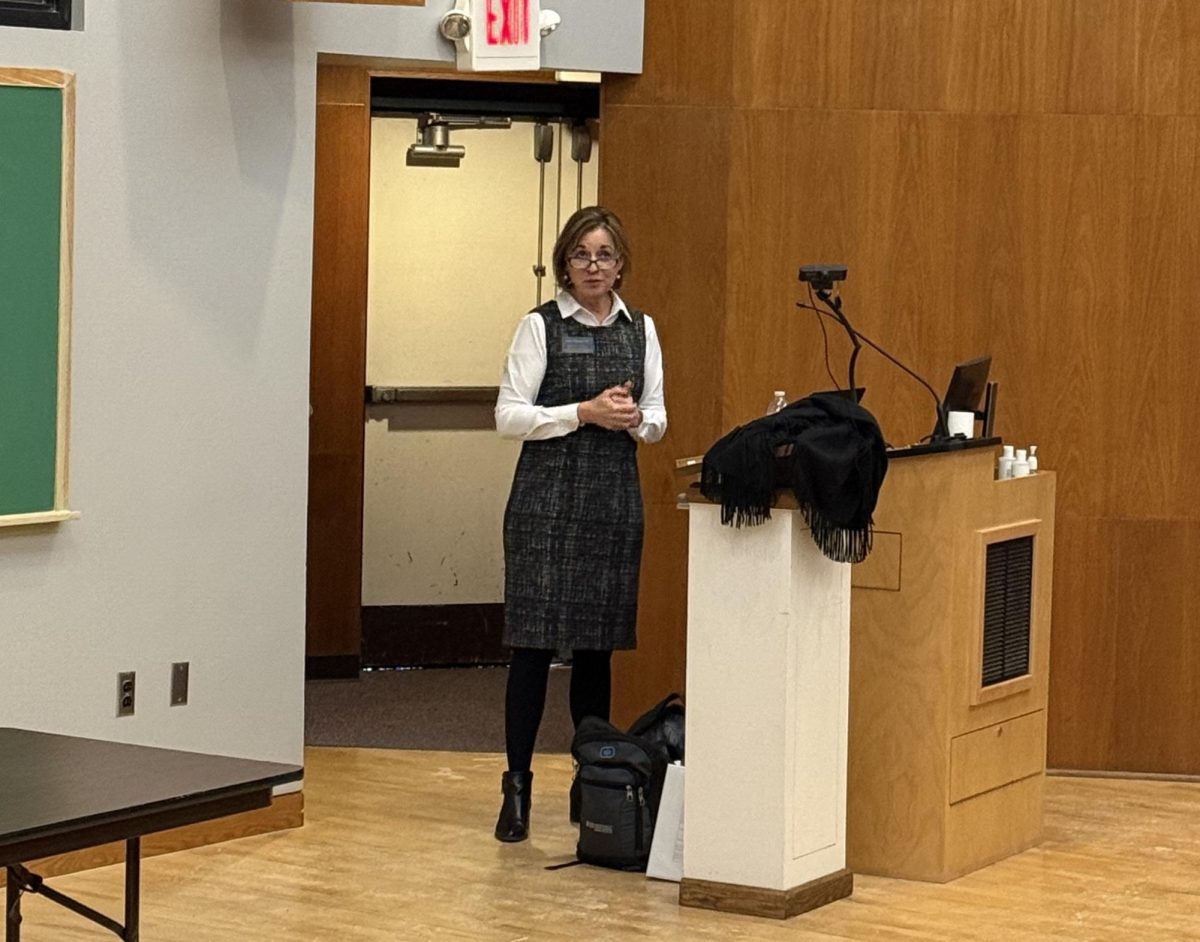By KERRY BORNSTEIN
Contributing Writer
bornstk@allegheny.edu
The Allegheny chapter of Lambda Sigma, the third-oldest chapter in the nationally recognized and prestigious sophomore honr society, is undergoing a series of revisions as it examines its future on Allegheny’s campus. Due to recent declining membership and visibility, the organization’s Executive Board met with administration to discuss the possibility of disbanding.
The various challenges that the honor society has faced over the years have been many. Lately there has been much confusion over the goals on the parts of the members of Lambda Sigma, as well as the benefits that it offers to its members and how it serves the Allegheny community. This confusion has led to problems such as lack of attendance and a lack of a coherent idea of what Lambda Sigma should do on campus and for its students.
President Alexis Nielson ’14 said the group decided not to disband. However, she understands the problems that plague Lambda Sigma and has decided that Lambda Sigma needs to make some serious changes.
“In the past it was something that freshmen joined without knowing what they were getting into,” Nielson said. “Last year it was sustained by two people.”
Fifteen members from this year’s group will be on the junior advisory board for the new members of Lambda Sigma. This advisory board is one new push that the organization is making. Its intent is to guide the new members into making sure that Lambda Sigma is a productive and orderly organization. In addition, there will be a push to focus more on professional development than on service, a shift from the group’s previous focus.
Once the problems became too much to ignore, Nielson, along with other members of the Lambda Sigma Executive Board, called for a meeting with administration and faculty, including Dean of Students Joseph DiChristina and Lambda Sigma Advisor Professor Patricia Rutledge to decide on what to do.
Selection Committee Chair Colin Soleim ’14 said that the administration was supportive of hearing their concerns. Nielson said she hopes that putting changes in place for next year will be effective, and will then produce effective student leaders on campus. These revisions include the new junior advisory board, an overall group focus on professional and leadership development for its new members, a new advisor from ACCEL, David Roncoloato, who will be taking over due to current advisor Professor Rutledge going on sabbatical.
Current member Emily Farr, ’14, said that it was difficult for her to do service activities with Lambda Sigma when there were other, more visible groups on campus to participate in.
“So many members were already involved in service opportunities with other groups on campus, and as a result it was hard to do the same with Lambda Sigma,” she said.
“Our students are very involved,” Former advisor and current Assistant to the Dean of Students Gretchen Kerr said. “All students have that challenge on campus, they are trying to navigate the things that they are involved in.”
Soleim said Lambda Sigma is a unique group for emerging student leaders.
“Lambda Sigma should be inviting people to join who are already leaders and who are good leaders, learning how to train others, to carry yourself as a leader,” Soleim said. “This is a role that not many other organizations could fill and one than an honor society could fill.”
The honor society is based on academics and the top 35 percent of the freshman class is eligible. Fifty or so students are accepted every year. In addition to academic excellence, acceptance is alos based on personal future goals and where students see themselves in the future.
As Lambda Sigma implements its new changes, Soleim is optimistic for the future of the organization.
“In recent history it hasn’t been great but that doesn’t mean I don’t have high hopes for it next year. We’ve learned a lot from this year and it will radically change next year,” said Soleim.








